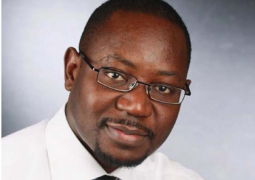
The next article entitled "Struggle in Islam" by John Spozito agrees with Abolfazl's logic about the ideology of puritan Islamic fighters. He agrees with Abolfazl that the theological codes and ideology of these groups has divided the world into two parts: the world of Islam and the world of Faith. He says the radical argue that those who opposed their radical views must be destroyed whether they are Muslims or non-Muslims. Thus Spozito's article endorses Abolfazl's viewpoints.
Another answer to Abolfazl entitled, "Multiple Traditions" by Qamar al-Hodi rejects Abolfazl's argument that the domination of clerics by the Islamic governments has distorted the sources of emulation and that distortion has led to the emergence of Vahabism as the real supporter of extremists groups. He says religions sources of emulation have many followers. As an example he refers to mystic scholars who had many admirers and supporters. "Therefore the problem with the Islamic world is not a lack of religious leaders, but lack of dialogue and consultation with religious sources of emulation by Islamic governments," Al- Hodi adds.
The eleventh and last answer to Abolfazl is from Scott Appleby and is entitled "Confusion in leadership." As it can be deduced from the title of his essay, Appleby too like Abolfazl and contrary to Qamar al- Hodi believes the crises in the religion sources of emulation is the main problem that beset Islamic world. He doesn't limit that crisis to Islam. He says other religions too have problems with their leaders. The Serbian Orthodox soldiers were chanting Christian religious songs when they were slaughtering Muslims.
Extremism Jews who commit violence resort to Torah to justify themselves and Al-Qaeda terrorists too, who act the name of Islam, ignore the injunction in the Quran that innocent people must not be killed (p.102). Appleby believes that traditional religious communities in the modern world need strong and independent leaders to avoid the predicted clash of cultures.
The commentaries on Abolfazl's article can be divided into three groups. The first opposes discussion about moderation in Islam and maintains that any talk about moderation in Islam means that Muslims must accept repression and domination by non-Muslims. Abidollahjan and Masoud Razavi are in that group. The second group rejects his method of research and his theological theories and instead of underlining theological sciences they call for improvement of political, social and economic structures in Islamic states. Belgrami, Courts and Tariq Ali are among that group. The third group accepts Abolfazl's logic but makes remarks about his article.
In reply to these critics Abolfazl again has underlined his former position i.e. moderation in Islam and refers to the need to examine the religious doctrines of the extremist groups. Abolfazl says millions of people confirm the existence of Almighty God as part of their moral and physical world which proves the significance of theological sciences. He says another reason to resort to theological sciences is to ignore the legitimacy of radical groups.
In the end Abolfazl concludes his answers to his critics by raising the following question, "With regard to the position of Islam verses moderation or violence one must see which Islam they are talking about?" He answers that it is the moral duty of Muslims to address to that question. The question itself implies the different interpretations of Quran and the impact of doctrines of each group in the behavior of Muslims."
Conclusion
Since different commentaries and opinions have been expressed about Abolfazl?s article and Abolfazl himself has answered these commentaries I don't think I need to re-examine Abolfazl?s logic and distinguishing the weak and strong criticism leveled against the author.
In fact despite its small size "Moderation in Islam" supplies deep theories to help us to analyze some of the realities in the contemporary world, particularly his wise analysis of the September 11 catastrophe and the violent measures by extremist groups. The main intention of the author is to show the west that contrary to their belief the September 11 incident and other terrorist acts are unrelated to genuine Islamic teaching. Instead it is a mistaken and extremist interpretation of Islam which makes small groups to resort to such violent measures whilst the majority of Muslims encourage moderation and tolerance. He says true Islam is that which the majority of Muslims understands and lives with and peace and friendship among people is the true message of Islam in moderation is the main factor. Abolfazl has focused on three important subjects: crisis in legitimacy of religious sources of emulation, the need to make positive interpretation of Quran and to rely on historical interpretation of the sacred book. This is why Abolfazl says, "We must see which Islam we are interpreting in order to solve the problems in the Islamic world?"
We too like Abolfazl believe that religion is a text which can be defined by its followers in different manners. As a consequence every in religion is interpreted different manners. In the interpretation of Islam and Quran too we can make moderate or anti-moderate interpretations. It is obvious that extremist groups' interpretation of Islam opposes moderation and tolerance and the picture they portray to the world is not that of a philanthropic and peace-loving Islam. Therefore, contrary to Abolfazl the main question is not to ask "Which Islam we are speaking of?" Instead of attending to doctrines of radical groups we must take one step ahead and try to discover the reason for development of such extremist views. We must answer to the following question: "why these groups portray such a harsh and gruesome interpretation of Islam to the world?"
Abolfazl seems to have indirectly answered that question. His answer lies in the criticism of legitimacy among religious sources of emulation. Courts attribute it to social structure but we must conduct extensive research to respond to that question ... The End.
As you have seen, this Article and the previous one are written by Khalid Abolfazl and Translated by Mohammad Taqi Delforouz.
Dear reader, you may share me the belief that the two previous Articles and others are good materials to understand the roots of the modern Islamic extremism and fundamentalism, both of which let the world to the bad situation that everybody is paying its bitter prize today.
On that reason the Islamic Center for Harmonization of Schools of Thought in The Gambia sees it necessary to subtract such Articles from (Al- taqrib Journal on Islamic unity and Proximity) Published by (The World forum for Proximity of Islamic schools of Thought)
It is well known by every individual in this world today that no country in the world is free from the elements of extremist, whether we see them or not, therefore is the basic duty of every peace loving builders, like my Centre to increase their efforts to expose those who decide to destroy the world by the name of Jihad whilst Jihad has no relation to them.



